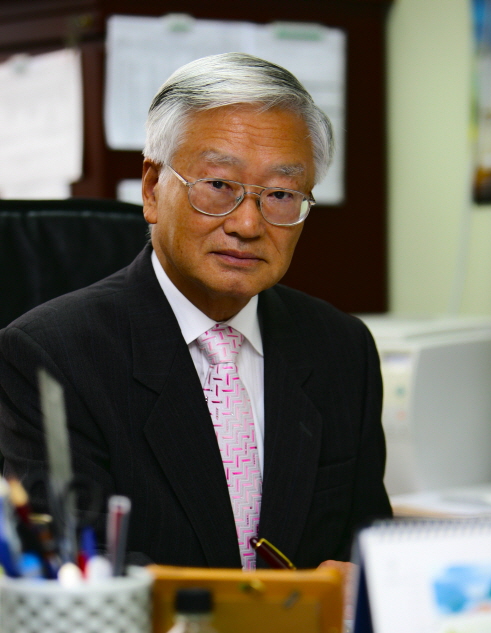
“Retirement does not mean finishing the relationship with the school,” he said. “Koreans commonly think that retirees stop working, but in many countries retirees remain active in their field and this is more efficient. In many advanced countries, retired professors can have many chances to share their long experience and wisdom through public lectures, advice, and even academic lectures. In addition, their salaries can be received from the pension, so it can also be efficient financially. Many Korean universities don’t apply these chances. POSTECH is such a unique case. Because I knew I could work for the school after retirement, I had no special plan for my retirement.”
He delightfully introduced his work after retirement, and The Postech Times asked him about what was memorable in his life as a professor of POSTECH. “It is hard to say only one most memorable thing. I remember when the first president, Hogil Kim, passed away, when the Pohang Accelerator Laboratory was completed, and when POSTECH ranked 1st among universities of science and technology in the 1998 Asiaweek University Ranking.”
His answer to the next question, about his personal impression of graduations in the past, started with his personal story. “I got a bachelor’s degree in 1961. At that time, South Korea was so politically turbulent that one government was kicked out by citizens and one government seized power for only two years. Korea was one of the poorest countries in the world. There were only 12 engineering departments in South Korea. I want to give more meaning to my graduation in that the environment was so bad in those days.”
He proceeded, “As a retiring professor, it makes me emotional to remember the time of preparing the school, opening the school, and looking at hundreds of graduating students annually.”
The last question The Postech Times asked was about his advice for graduating students. He noted, “There are 320,000 new B.S.’s, 60,000 new M.D.’s, and 10,000 new Ph.D.’s annually in South Korea. You are not only one of them. You are among the selected elite. Be proud of that fact, and have a special sense of responsibility and duty. Now graduated students of science and technology departments play a key part in many fields, not only in the field of scientific research. You need to be prepared for being a leader.”
About the competence students must have, he emphasized, “Of course, the understanding of one’s major area of expertise is the most important. Except for that, what we should focus on is having a broad point of view. That means, it is especially necessary for Postechians to be refined in humanities and social sciences. I want to say, ‘Read books about diverse subjects.’”
м Җмһ‘к¶Ңмһҗ © нҸ¬н•ӯкіөлҢҖмӢ л¬ё л¬ҙлӢЁм „мһ¬ л°Ҹ мһ¬л°°нҸ¬ кёҲм§Җ


